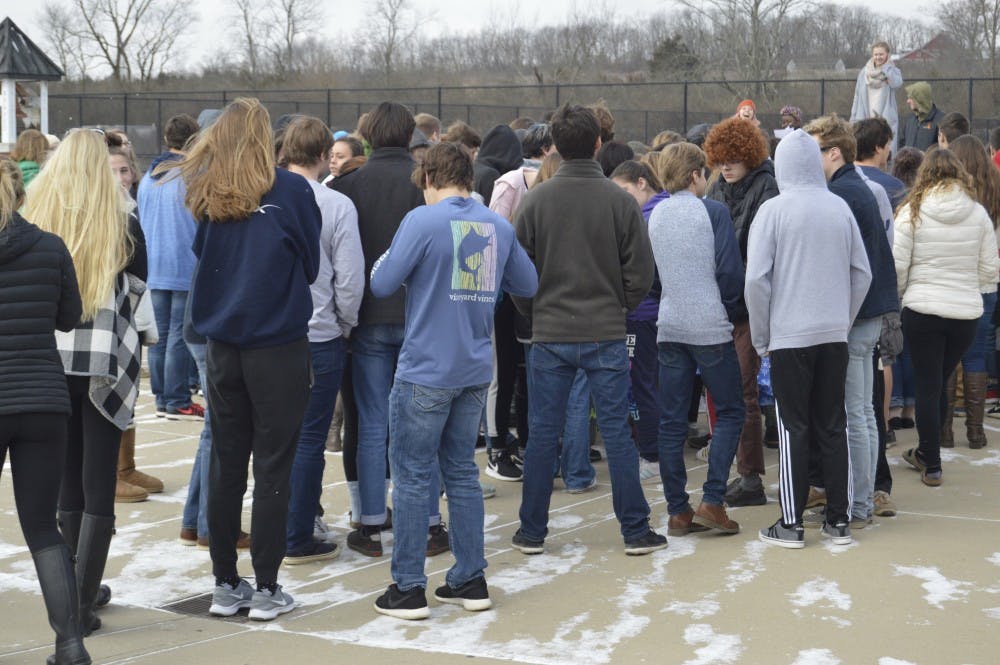"Why does this matter?"
The question reverberated around the courtyard next to the football field behind Talawanda High School. Over a hundred teenagers and a smattering of teachers and administrators stood in silence.
Despite it being mid-March, the cold wind whipped around the mass of students huddled outside from 10 a.m. to 10:17 a.m. on Wednesday, March 14, to honor the 17 lives taken during the shooting at Marjory Stoneman Douglas High School in Parkland, Florida last month.
Sophomore Ella Cope repeated her question.
"Why does this matter?"
It matters, Cope said, because all of the students gathered in the courtyard had all sat in a classroom at one point and let their minds wander, wondering if today might be the day it happens at their own school.
"Because although we tell ourselves it could never happen here, there's nothing stopping it from happening," she said.
Cope was instrumental in organizing Wednesday's walkout, but her message was also championed by seniors Maddy Abowitz, Mazvita Ngorosha and Amily ZhouWang, who read aloud the names and stories of some of the students killed at Marjory Stoneman Douglas.
One 14-year old freshman, Alyssa Alhadeff, played the best soccer game of her life the day before she died, the students read. Another, senior Peter Wang, was posthumously admitted to West Point after helping his fellow classmates escape from the gunman.
"It's important to remember their names and stories and just remember they [were] people and students -- like all of us are," Abowitz said.
The demographics of Talawanda are split.
There's a bit of a cultural divide at the high school between the students whose families work for Miami and those who are employed elsewhere, Abowitz said.
The turnout for the walkout surprised Cope and her fellow organizers.
"We didn't know how many people would show up," Cope said. "[But] thank you for doing something rather than remaining complicit."
Talawanda's principal, Tom York, stood off to the side of the rally. He nodded his head as his students spoke.
"I've been working in education for the last 39 years," York said. "Back when I was at Edgewood [High School in Trenton, OH] during the nineties it wasn't unusual to see kids driving pickup trucks with rifles in the back on a gun rack."
"Columbine changed everything," he added.
Throughout the last 40 years, York has noticed how much students and administrators' worries and fears while going about their daily lives at school have changed.
"Of all the constituents in schools, kids have the least amount of voice," York said.
So, when three students approached York in his office to ask about showing support for the victims and survivors of the Marjory Stoneman Douglas high school a few days after the Parkland shootings, he encouraged them.
"It's important for them to be able to express themselves," York said.
As the rally was about to close, Cope thanked her fellow students for participating and standing in solidarity.
"We are tired of living in fear," Cope shouted to the crowd. "We are your peers. We see you. We hear you, and we have your back."
doyleca3@miamioh.edu

